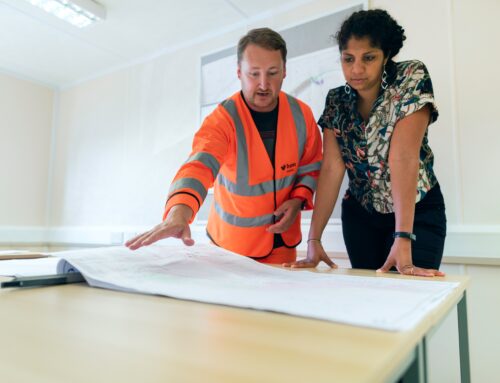If you are having trouble attracting and retaining Millennial and Generation Z employees, you are not alone. Deloitte has been surveying Millennials and Gen Zs for a few years because these two generations are shaping the future of employee retention in a big way. Depending on the chart, Millennials’ years of birth range from 1980 to 1994. Gen Z’s birth years are 1995 to 2012. These are the employees we are trying to attract and retain today.
I came from the world of 10 keys and paper balance sheets. The Millennials and Gen Zs cut their teeth on the keyboard. My nephew helped my father navigate the internet when he was still in diapers. The world is changing, and we, as employers, need to understand what these two generations of employees need to thrive in their work environments.
What Generation Z and Millennials Want in the Workplace
A couple key takeaways from the Deloitte survey of Gen Z and Millennials are:
- Purpose-Driven Work
A majority of Millennials and Gen Z workers prioritize meaningful, purpose-driven roles. They value jobs where their contributions align with larger societal or organizational goals, enhancing their sense of well-being and satisfaction.
- Work-Life Balance
For these generations, work is only part of the equation. They seek employers who support their desire for balance, allowing time to relax, learn, and pursue personal interests.
- Alignment of Values
Almost half of Millennials and Gen Zs have rejected job offers due to misaligned values. Key concerns include work-life balance, environmental sustainability, and inclusive practices.
- Commitment to Social Impact
Social responsibility is a top consideration for these workers. They assess organizations based on their social impact, which significantly contributes to employee retention.
Technology as the Bridge to Engagement and Retention
Millennial and Generation Z employees believe in purposeful work, but they will leave a job that does not provide the work/life balance they need. This means they want to work smarter and have time to play.
Technology and automated processes can streamline the work performed by employees. This contributes to both “purposeful work” and “work/life balance”.
Deloitte’s Engineering and Construction Industry outlook for 2025 confirms that industry leaders are prioritizing technology investments with efficiency being the goal. A focus on employee engagement includes:
-
- Using technology to attract and retain talent by improving working conditions and safety.
- Enhancing career opportunities with tools like AR and VR to make learning interactive and engaging.
- Promoting diversity and inclusion to address labor shortages and attract younger, more dynamic talent pools.
Actionable Recommendations for Construction Leaders
Recommendations for the Construction Industry based on Deloitte’s 2025 Engineering and Construction Industry Outlook include:
- Integrate Advanced Technologies:
- Encourage adoption of automation, AI tools, and robotics to optimize workflows and reduce reliance on manual labor.
- Invest in BIM and digital twin technologies to improve project planning, collaboration, and delivery.
- Foster Workforce Development:
- Focus on reskilling workers to address both traditional and digital skill gaps.
- Build strong ecosystem partnerships with educational institutions to train the next generation of construction workers.
- Enhance Employee Experience:
- Leverage digital tools to create safer, less physically and mentally demanding jobs.
- Offer competitive career paths and flexible work environments tailored to the expectations of younger generations.
Conclusion: Meeting the Needs of Millennials and Gen Z in Construction
Millennials and Generation Zs are innovators who crave purpose and work/life balance. To capture their loyalty and spark their passion, the construction industry must evolve into more than a workplace; it must become a platform for purpose, growth, and belonging.
These generations crave meaningful work that echoes their values, balanced by the time and space to live beyond the jobsite. They don’t just seek careers but causes. They want their work to mean something, and they strongly dislike inefficiency.
By weaving new technology into the fabric of construction—streamlining workflows, fully connecting field to office, and automating manual processes — the construction industry can build a workforce ready to thrive in the future.
Karen Wagnon is the President of SelectView Data Solutions. SelectView specializes in building integrated applications for the construction industry. For more information on SelectView Data Solutions, please visit our website at selectviewdata.com.





